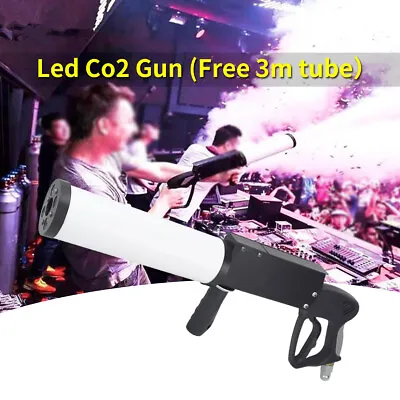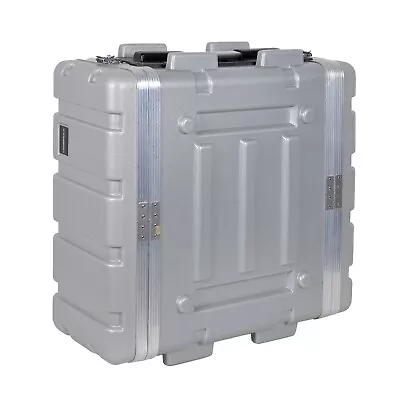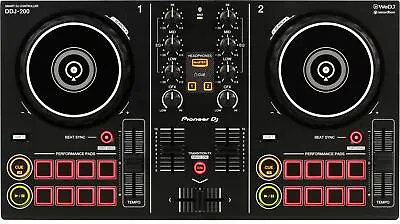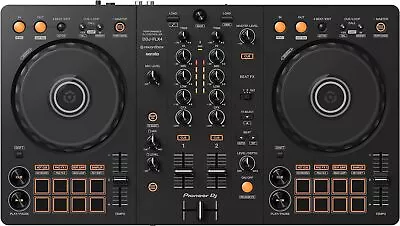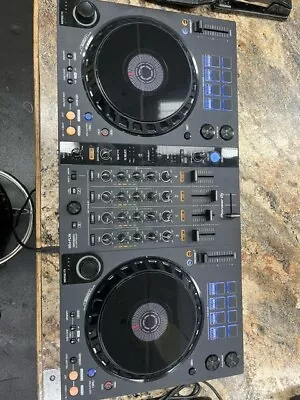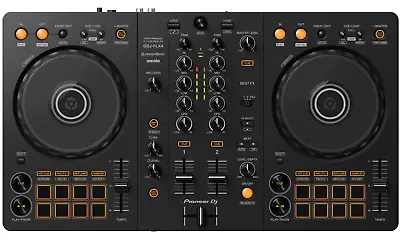This site may earn a commission as part of the eBay Partner Network and Amazon Associates Program if you make a purchase through our links.
A Beginners Guide to Buying DJ Equipment
A DJ is an important part of many celebrations, including weddings, bar mitzvahs, bat mitzvahs, and other large parties. The DJ can make or break any party that includes dancing depending on whether the DJ is talented and if the playlist he or she uses for the party is appropriate. Typically DJs provide most of their own equipment at each party, though speakers and a sound system may be available for use at some venues.
Music lovers or other individuals wishing to try their hand at deejaying will need certain pieces of equipment to get started as a DJ, whether they are just planning to "spin" at their own private parties or they are trying to turn it into a lucrative business venture. Talented individuals may be able to turn deejaying into a career or at the very least a lucrative side business.
A History of Deejaying
Although the term disk jockey, abbreviated DJ, did not come about until 1935, the first radio DJ began broadcasting in Stockton, California in 1909. Walter Winchell, an American commentator, used the term disk jockey to describe Martin Block, one of the first DJs to gain national attention. The first dance party to feature a DJ took place in 1943 in Otley, England, and the first discotheque appeared in Paris, France in 1947.
Throughout the 1950s, American DJs routinely showed up at sock hops, playing 45-RPM records and talking in between playing songs. These early DJs used a single turntable, which meant they had to entertain the crowd in other ways while switching from one record to another. A two-turntable system was introduced in the U.S. in 1955 by Bob Casey, a popular DJ of the time. This system allowed DJs to switch from one song to another without having to change out the record. The DJ could reload the first turntable while the song was playing on the second turntable and vice versa. This era popularized parties with live DJs.
Though originally live DJs mainly played songs without altering them in any way, a new way of playing music, known as turntablism began to develop in the 1970s and became quite popular in the 1980s. The term turntablism refers to using turntables to create and manipulate sounds and music. House music, another popular genre for DJs today, also came into existence in early 1980s Chicago. This new style of music featured a 4/4 drum beat created using a drum machine along with a solid synthetic baseline. Techno music, another genre of music featuring fully electronic music and synthesized beats, also became popular toward the end of the 1980s, giving DJs even more electronic music to mix with their turntables.
DJs at weddings and banquets also became quite popular in the 1980s, giving DJs additional sources of income. DJs quickly built lists of crowd-pleasing songs and audience participation events and combined them with their larger-than-life personalities to make hiring a DJ for a wedding more desirable than having a live band.
The 1990s saw the invention of the compact disc as well as the digital music file format known as an MP3. Though many diehard vinyl fans were reluctant to convert to these newer formats, these new technologies meant that DJs no longer had to carry around heavy crates filled with music. Today, most DJs play music with the help of a computer and software specifically designed for music mixing and deejaying. Songs are typically stored on hard drives rather than CDs or other forms of portable media.
Types of DJ Equipment
There are several pieces of DJ equipment that are considered essential as well as other items that are optional. Some DJs may not be able to live without some of these optional items, while other DJs have successful careers without them. Choosing which pieces of equipment to buy will depend on whether a DJ is just beginning or adding pieces to his or her collection, the size of the parties the DJ plans on playing at, and budget.
Music Source
One of the most important pieces of equipment for a DJ is a music source. While early DJs used turntables, most DJs today use CD players or laptop computers to access their music. It is certainly still possible to DJ using turntables; however, most music these days is not recorded on records. DJs wishing to use CD players will need two mixable CD players and the songs they plan to play burned onto CDs. Deejaying using CD players is certainly still feasible today, although most DJs prefer not to have to cart around hundreds of CDS.
Most DJs today perform using a laptop computer equipped with deejaying software. The music they choose from is either stored on the laptop's built-in hard drive or an external hard drive, or both, depending on the drives' capacities and the amount of music the DJ owns. The music is accessed and played via the music mixing software installed on the computer.
Headphones
More than just a fashion statement, a good pair of headphones is essential for any DJ who plans to mix songs and wants to make sure the second song starts on the right beat. While some digital DJs rely on something called waveriding rather than listening to the music using headphones, beginning DJs will find it easier to listen to the music to find the correct beat. Those who choose to waveride, or find the beat using the waveforms provided by the DJ software, do not need the headphones, although they may want a set just for backup.
DJ Mixer
A DJ mixer is a specialized audio mixer that allows the user to redirect music from a non-playing source or a laptop to headphones so the DJ can preview the upcoming song. Most DJ mixers also have a crossfader, which is a sliding switch that allows the DJ to transition from one music source to another. Using a crossfader, the first song gently begins to fade out while the second song starts out faint and gets louder. Though most mixers will work with any DJ software, some mixers are only compatible with specific software. This is an important factor to keep in mind when shopping for DJ mixers.
Microphone
Since most DJs need to be heard during the course of a party or an event, a microphone is another piece of essential DJ equipment. Which type of microphone a DJ purchases will depend on his or her personal preference, how much speaking he or she needs to do, and where he or she will stand when speaking. A DJ who makes only minimal announcements and who does not need to leave his or her DJ equipment to do so, could get away with using a very simple wired microphone, whereas DJs who plan to roam the room while speaking will want to invest in a wireless microphone. If a DJ will need to allow others to use a microphone, a typical hand-held microphone would be preferred. If, however, the DJ does all the speaking, he or she could opt for a headset-style microphone to keep his or her hands free.
Amplifier
Unless a DJ has invested in active speakers, which have amplifiers built in, he or she will need to purchase an amplifier to boost the signal and make it strong enough to reach the speakers. DJs can use either passive or active speakers if they have an amplifier, but must use active speakers if they are foregoing the amplifier. Since active speakers are more expensive than passive speakers, most DJs opt for an amplifier and passive speakers; however, using both means more equipment to transport and keep track of.
Speakers
DJs need speakers so partygoers can hear the music they are creating and playing. Many venues, such as nightclubs and banquet halls, typically have speakers and built-in sound systems that DJs can plug into, but for DJs who plan to specialize in private parties, especially smaller private parties, at least a few speakers are essential. DJs will also need speaker stands if they want their speakers up off the floor along with all the necessary cables to connect their speakers to the rest of their DJ equipment. DJs should also carry spare cables and cables in a variety of lengths to ensure they can connect their equipment in any space.
Shopping for DJ Equipment
Aspiring DJs and current DJs looking to enhance their collection of DJ equipment will find many popular models available at local music specialty stores. Typically larger cities have at least one or two of these stores that sell speakers, microphones, musical instruments, and other specialty music equipment. A trip to one or two of these stores is a good way to find out which equipment is popular with the local DJs and may help prospective buyers determine which items they wish to purchase.
Laptops can be purchased at electronics stores and some department stores. Before making a purchasing decision on a laptop, buyers should check out the selection of available DJ software titles and select which one or ones they plan to purchase so they can ensure the software is compatible with the laptop. The main compatibility issue buyers need to be concerned with is whether the software is PC or Mac compatible.
Buyers will also find a wide range of DJ equipment for sale online. Consumers can browse through the selection on retail sites and specialty music sites as well as the listings on eBay. Because eBay is the most popular auction site on the Internet today and allows users to list both new and used equipment, it is a great starting point for prospective buyers searching for DJ equipment.
Conclusion
Although deejaying is not an inexpensive hobby, it can be an additional source of income, a way to entertain friends and family, or a source of stress relief, depending on the individual who is pursuing it. The good news is that once the initial investment is made for equipment, it is possible to DJ for quite some time before needing to add large quantities of additional money for more equipment. If a prospective DJ invests in the right equipment, he or she will really only need to invest a minimal amount of money for downloading new songs until he or she begins to DJ large parties where additional equipment is needed. At that point, the DJ can decide to add pieces to the collection or upgrade certain pieces rather than accumulate more equipment to transport and setup.
